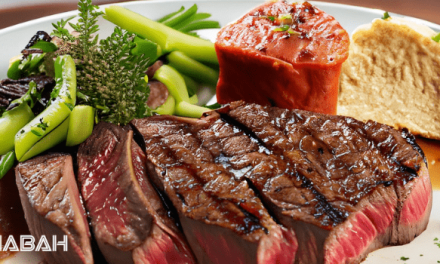Are all eggs halal? How can we ensure that the eggs we consume align with Islamic principles? In this comprehensive guide, we will delve into the intricacies of halal eggs, exploring the various factors that determine their permissibility, the different labeling practices, and practical tips for making informed choices. Whether you are a Muslim seeking clarity or simply curious about the intersection of faith and food, I am sure you will enjoy this ride.
Decoding the halal status of eggs.
Definition of halal and haram in Islam
In Islam, foods and acts are categorized as either halal or haram.
- Halal refers to things that are permissible under Islamic law
- Haram refers to things that are forbidden
The Quran guides what types of food are allowed for Muslims. However, there are some gray areas where scholarly opinions may differ.
Eating halal is an important part of practicing Islam.
For Muslims who strictly follow Sharia law, consuming Halal products is integral to their faith. Determining whether eggs are halal or not is essential, especially with egg-based products being commonplace nowadays.
Also:
“Muslims are very concerned about whether an egg is halal or not. The egg is an essential ingredient used for making desserts and baked products.”
Some key considerations in determining if eggs are halal:
- Source of the eggs
- Chicken, duck, quail, etc
- Diet and treatment of the birds
- Methods of egg collection and processing
Establishing clear guidelines on the halal status of eggs allows Muslims to incorporate eggs into their diets confidently.
Factors in Determining if Eggs are Halal
Several key factors impact whether eggs are considered halal or haram under Islamic law.
Source of the eggs
Eggs derived from different types of birds have different halal statuses:
- Chicken eggs are generally considered halal
- Duck eggs are typically deemed halal as well
- Quail eggs are halal according to most scholars
- Eggs from birds of prey like hawks are haram
How the chickens/birds are raised and fed
- Vegetarian diet – Birds fed an all-vegetable diet produce halal eggs
- Animal byproducts – Byproducts like bone meal or animal fat can make eggs haram
HalalGuidance states:
“Chickens are not naturally vegetarian. They are omnivores and will eat small mice and insects if they can get them. However, chickens raised for commercial egg production are fed a strictly vegetarian diet of corn, soy and wheat.”
Methods of egg collection and processing
- Co-mingling of eggs – Eggs from halal and non-halal sources should not be combined
- Proper cleaning – Washing with non-halal substances can contaminate eggs
Evidence That Eggs Are Halal
Several Islamic principles and scholarly opinions point to eggs being permissible for Muslims to eat.
Eggs from vegetarian-fed chickens are halal
As long as the chickens are fed an all-vegetable diet, the eggs are considered halal:
“Scholars unanimously agree that eggs laid by chickens fed on a vegetarian diet and not treated with hormones are halal.”
Hadiths state that eggs are pure and permissible
Multiple hadiths indicate eggs are halal for Muslims:
According to IslamQA:
“Eggs of Halal birds are permissible provided they do not contain any impurity or are not from unknown birds. Eggs of chickens, ducks, geese, turkeys, guinea fowls are Halal.”
Most Islamic authorities and scholars deem eggs halal
The majority opinion points to eggs being permissible, according to SimplyLuxeLiving:
“The general consensus is that eggs are halal. The Islamic authorities, including the European Council for Fatwa and Research, agree that eggs are halal.”
Circumstances That May Make Eggs Haram
While eggs are generally considered halal, there are some exceptions where eggs could be deemed haram for Muslims.
Eggs from birds fed non-halal substances
If birds consume pork, meat from unlawful animals, or other haram substances, their eggs become haram.
According to YouWell:
“An egg is considered haram if the chicken has consumed food that clearly includes haram ingredients such as pork, blood, insects, or meat from an animal that was not slaughtered in the Islamic manner.”
Uncertified processing plants
Plants that mix eggs from haram and halal sources make it impossible to guarantee the halal status.
As SimpleLuxeLiving explains:
“In some large factory farms and plants, haram and halal eggs can get unintentionally mixed, thus making the halal status of those eggs questionable.”
Fertilized eggs or with blood spots
Fertilized eggs or those with blood spots should be avoided by Muslims.
According to HalalGuidance:
“Blood spots or egg fetuses can occasionally be found in eggs. Such eggs should not be consumed in order to avoid any doubt.”
Certifications and Oversight for Halal Types of Eggs
To ensure the halal integrity of eggs, there are organizations that provide certification and oversight.
Organizations that provide halal certification for eggs
Some leading halal certification bodies include:
- Islamic Food and Nutrition Council of America (IFANCA)
- Islamic Services of America (ISA)
- Halal Transactions of Omaha
“Major Islamic organizations like IFANCA and ISA certify chicken eggs as halal if the chickens are fed a vegetarian diet.”
What the certification process entails
Certification involves inspecting and auditing various aspects:
- Feed and diet given to laying hens
- Sources of chickens
- Egg collection and washing procedures
- Adherence to food safety standards
“Halal certification authorities thoroughly check all practices from rearing to transportation to verify halal compliance.”
How to identify certified halal eggs
Look for certification seals from approved organizations on egg cartons. Reputable companies will provide codes to verify certification on their websites.
Frequently Asked Questions-Are Eggs Halal
Yes, eggs are generally considered halal for Muslims to consume.
Can Muslims eat any type of eggs?
Yes, Muslims are allowed to eat eggs from any permissible animal such as chicken, duck, turkey, quail, etc.
Must eggs be halal or considered halal?
Eggs by themselves are not deemed halal or haram. They are considered permissible as long as they come from halal-slaughtered animals.
Can Muslims eat raw eggs?
It is generally recommended to avoid consuming raw eggs due to the risk of salmonella contamination. It is safer to cook eggs before eating them.
Are eggs from haram animals halal?
No, eggs from animals that are considered haram, such as pigs or carnivorous animals, are not considered halal.
Are eggs permissible for Muslims?
Yes, eggs are considered permissible for Muslims to eat.
Can Muslims eat eggs from permissible animals?
Yes, eggs from animals that are generally considered halal to consume, such as chickens, ducks, or turkeys, are permissible for Muslims.
Are unlaid eggs halal?
Unlaid eggs are also considered halal since they come from halal-slaughtered animals.
Can Muslims eat eggs from haram animals?
No, eggs from animals that are considered haram to eat, such as snakes or certain predatory birds, are not halal.
Is it permissible for Muslims to eat eggs?
Yes, according to the Islamic dietary guidelines, eggs are permissible for Muslims to consume.
Conclusion
Summary of key points
- Halal refers to what is permissible under Islamic law while haram refers to what is prohibited
- For eggs to be halal, the birds must be fed a vegetarian diet and not given hormones
- Eggs from chickens, ducks, quails are generally deemed halal by Islamic scholars
- Improper mixing of eggs or uncertified processing can render eggs haram
- Organizations like IFANCA provide halal certification of eggs for Muslim consumers
According to HalalGuidance:
“The majority of scholars agree that eggs are permissible to eat in Islam. As long as the proper precautions are taken, eggs represent an excellent source of nutrition for a halal diet.”
Recommendations for sourcing halal eggs
When purchasing eggs, Muslims should:
- Look for halal certification from approved organizations
- Verify the certification is current and authentic
- Avoid uncertified bulk or liquid eggs
- Inspect eggs thoroughly before use
- Ask suppliers about diet and processing if uncertified
Following these guidelines can help ensure eggs conform to Islamic dietary requirements.





